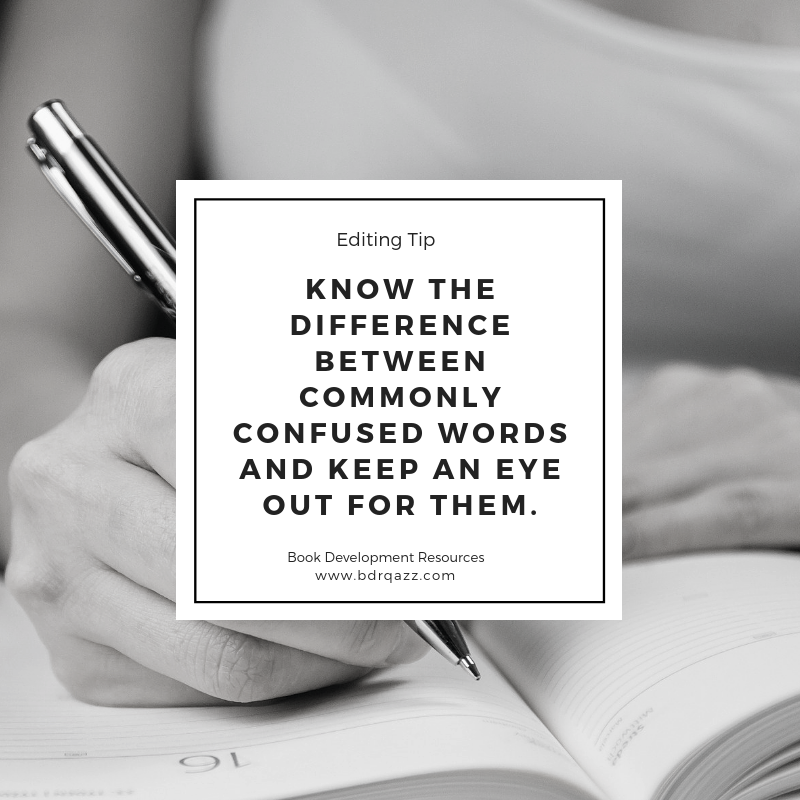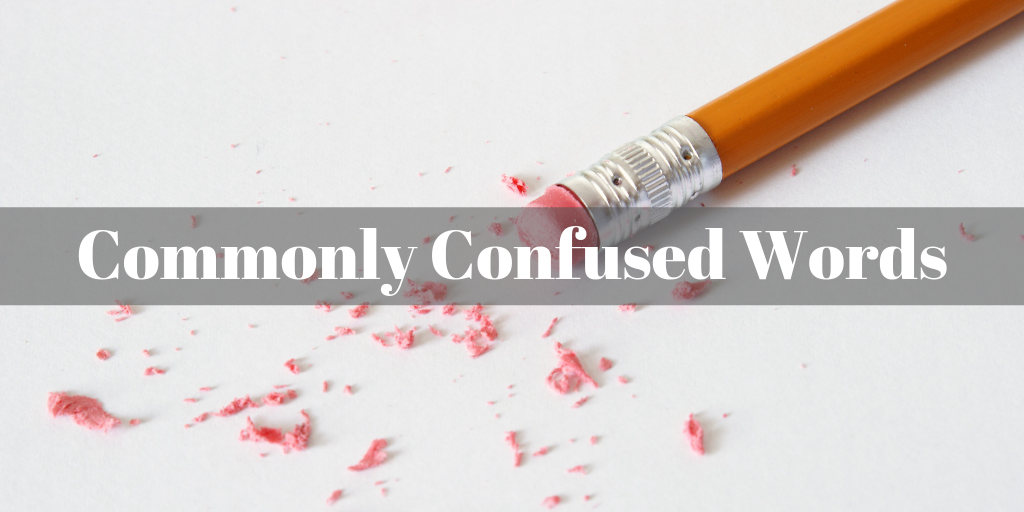Similar sounding words and spellings are easy to mix up when writing. What’s worse is that Spell Check won’t catch these mistakes. You need to know the difference between these word pairs (or triplets) and ensure they are used correctly.

The following is a basic list of commonly confused words, taken from Dummies’ Commonly Confused Words and Descriptions, that does a great job explaining some of the most common mixed up words and their definitions.
Notes marked by * and ** are my own.
This isn’t a comprehensive list. There are many more words that are easily confused by writers and non-writers. A good editor will notice these words and compile them, making their own list.
Commonly Confused Words
Affect: generally a verb meaning “to influence”
Effect: usually a noun meaning “result”
Good: describes a person, place, thing, or idea
Well: describes an action
Lie: as a verb, “to rest or recline”
Lay: as a verb, “to place in a certain position”
*This is one of the most commonly confused words I (BDR) have seen in my experience with editing
**For further explanations on Lie vs. Lay and their tenses, see QuickandDirtyTips.com.
Its: shows possession
It’s: contraction of “it is”
There: indicates a position or place
Their: shows possession
They’re: contraction of “they are”
That: preceding a subject/verb statement, usually introduces essential information and isn’t preceded by a comma
Which: preceding a subject/verb statement, indicates extra information and is preceded by a comma
*This is one of the most commonly confused words I have seen in my experience with editing
Between: for two choices
Among: for a group of three or more
Farther: used for distance
Further: used for time or intensity
*This is one of the most commonly confused words I have seen in my experience with editing
Who’s: a contraction meaning “who is”
Whose: a possessive pronoun (belonging to who)
Who: used to refer to the subject of a sentence (substitution tip: who=he/she)
Whom: used to refer to the object of a verb or preposition (substitution tip: whom=him/her)
*For more examples of who vs whom, see GrammarBook.com.
Make Note of Patterns
Not everyone confuses the same words. As you work with a manuscript, note what mistakes the author (whether it’s your or someone else) tends to make. This lets you do a quick Find and Replace or Navigation search so you can correct all the errors at once. As this list isn’t comprehensive, be aware of other words that are being misused or their definitions misunderstood in the text you’re editing.

You should also note what words you slip up on yourself. That way you can catch them before you send your work to someone else.
